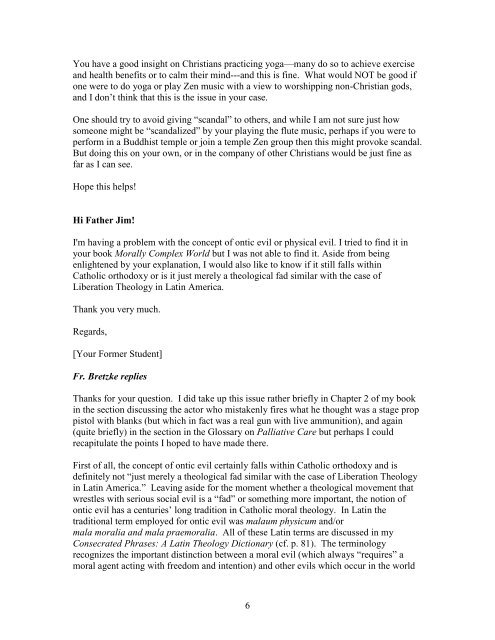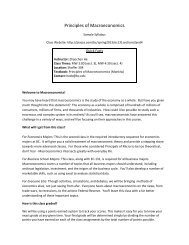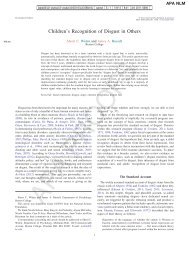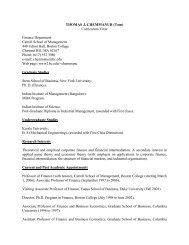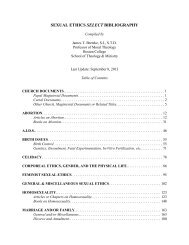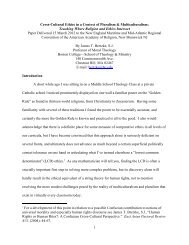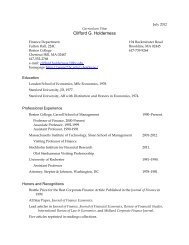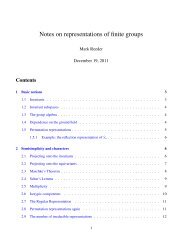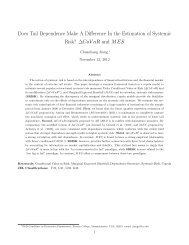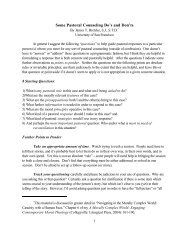Questions to the Moralist - Personal Web Server - Boston College
Questions to the Moralist - Personal Web Server - Boston College
Questions to the Moralist - Personal Web Server - Boston College
Create successful ePaper yourself
Turn your PDF publications into a flip-book with our unique Google optimized e-Paper software.
You have a good insight on Christians practicing yoga—many do so <strong>to</strong> achieve exercise<br />
and health benefits or <strong>to</strong> calm <strong>the</strong>ir mind---and this is fine. What would NOT be good if<br />
one were <strong>to</strong> do yoga or play Zen music with a view <strong>to</strong> worshipping non-Christian gods,<br />
and I don’t think that this is <strong>the</strong> issue in your case.<br />
One should try <strong>to</strong> avoid giving “scandal” <strong>to</strong> o<strong>the</strong>rs, and while I am not sure just how<br />
someone might be “scandalized” by your playing <strong>the</strong> flute music, perhaps if you were <strong>to</strong><br />
perform in a Buddhist temple or join a temple Zen group <strong>the</strong>n this might provoke scandal.<br />
But doing this on your own, or in <strong>the</strong> company of o<strong>the</strong>r Christians would be just fine as<br />
far as I can see.<br />
Hope this helps!<br />
Hi Fa<strong>the</strong>r Jim!<br />
I'm having a problem with <strong>the</strong> concept of ontic evil or physical evil. I tried <strong>to</strong> find it in<br />
your book Morally Complex World but I was not able <strong>to</strong> find it. Aside from being<br />
enlightened by your explanation, I would also like <strong>to</strong> know if it still falls within<br />
Catholic orthodoxy or is it just merely a <strong>the</strong>ological fad similar with <strong>the</strong> case of<br />
Liberation Theology in Latin America.<br />
Thank you very much.<br />
Regards,<br />
[Your Former Student]<br />
Fr. Bretzke replies<br />
Thanks for your question. I did take up this issue ra<strong>the</strong>r briefly in Chapter 2 of my book<br />
in <strong>the</strong> section discussing <strong>the</strong> ac<strong>to</strong>r who mistakenly fires what he thought was a stage prop<br />
pis<strong>to</strong>l with blanks (but which in fact was a real gun with live ammunition), and again<br />
(quite briefly) in <strong>the</strong> section in <strong>the</strong> Glossary on Palliative Care but perhaps I could<br />
recapitulate <strong>the</strong> points I hoped <strong>to</strong> have made <strong>the</strong>re.<br />
First of all, <strong>the</strong> concept of ontic evil certainly falls within Catholic orthodoxy and is<br />
definitely not “just merely a <strong>the</strong>ological fad similar with <strong>the</strong> case of Liberation Theology<br />
in Latin America.” Leaving aside for <strong>the</strong> moment whe<strong>the</strong>r a <strong>the</strong>ological movement that<br />
wrestles with serious social evil is a “fad” or something more important, <strong>the</strong> notion of<br />
ontic evil has a centuries’ long tradition in Catholic moral <strong>the</strong>ology. In Latin <strong>the</strong><br />
traditional term employed for ontic evil was malaum physicum and/or<br />
mala moralia and mala praemoralia. All of <strong>the</strong>se Latin terms are discussed in my<br />
Consecrated Phrases: A Latin Theology Dictionary (cf. p. 81). The terminology<br />
recognizes <strong>the</strong> important distinction between a moral evil (which always “requires” a<br />
moral agent acting with freedom and intention) and o<strong>the</strong>r evils which occur in <strong>the</strong> world<br />
6


